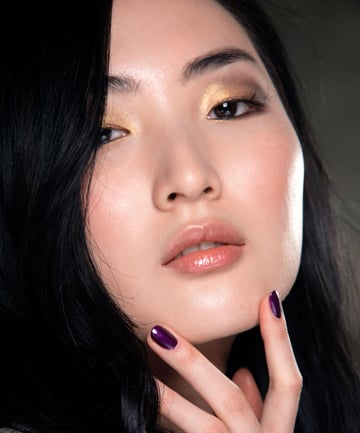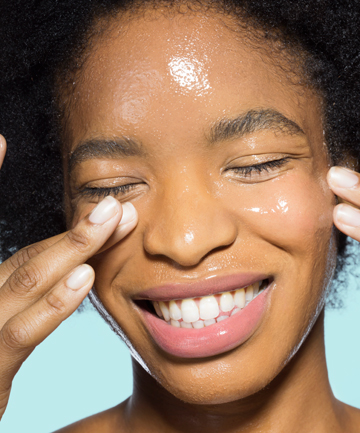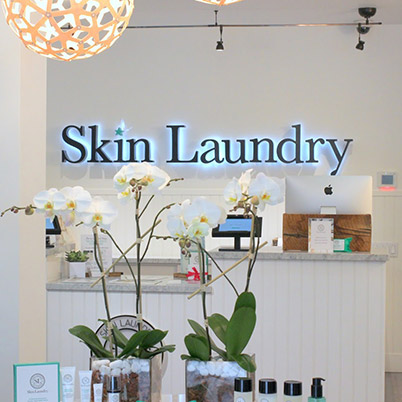There's no one-laser-fits-all solution for everyone, but if you don't have anything specific you're stressed about, Erickson suggests talking to your derm about a prejuvention treatment like a BBL, or Broad Band Light, in your late 20s to early 30s. "Starting these treatments early on will ensure less wrinkles and aging later in life if maintained properly," she explains. If you're already up to 40 candles on your birthday cake and only now considering this procedure? Don't sweat it since Erickson says lasers are also fantastic for correcting skin conditions that were caused by previous sun damage and aging and are very effective for people in their 40s and on.
Image via Imaxtree
Image via Imaxtree
The optimal time for a laser treatment is in the fall or winter when our skin hasn't been exposed to an abundance of vitamin D from the sun. As Erickson explains, the laser isn't as effective with a tan as it is when your skin is its natural tone. Also, if the laser you choose requires a recovery time, being away from potentially harmful UV rays when your skin is sensitive post-treatment will ensure your health. Before you have your first treatment, Erickson recommends using a retinol to prepare your pores, revving up the rejuvenation of your cells. Her go-to product is Alastin Regenerating Skin Nectar with TriHex Technology. "This product clears the extracellular matrix of any unwanted or damaged skin cells while making more room for the new skin cells to grow and develop," she says. You should use this at least two weeks prior for optimal results.
Though the type of laser treatment will guide your recovery, Sarkar says a soft approach is always a better one after you've put your skin through this type of procedure. She recommends using simple cleansers and moisturizing well and often. "Avoid active ingredients immediately after lasers, like vitamin C or retinoids/retinols. Protect your skin with sunblock and wear a hat," she says. "For some lasers, you can use cool compresses if there is swelling or pain. In short, be super gentle with your skin."
And mentally? Dermatologist Dr. Dendy Engelman urges first-timers to not expect immediate results and to give their skin time to heal. "The most important thing is to set expectations — the feeling of a sunburn; the redness that should go away and the skin after about one to seven days a following, depending on the treatment. The dead surface skin cells will then begin to flake off as the newer skin begins to replace it," she says. "That's when it will all start coming together."
Image via Getty
And mentally? Dermatologist Dr. Dendy Engelman urges first-timers to not expect immediate results and to give their skin time to heal. "The most important thing is to set expectations — the feeling of a sunburn; the redness that should go away and the skin after about one to seven days a following, depending on the treatment. The dead surface skin cells will then begin to flake off as the newer skin begins to replace it," she says. "That's when it will all start coming together."
Image via Getty







